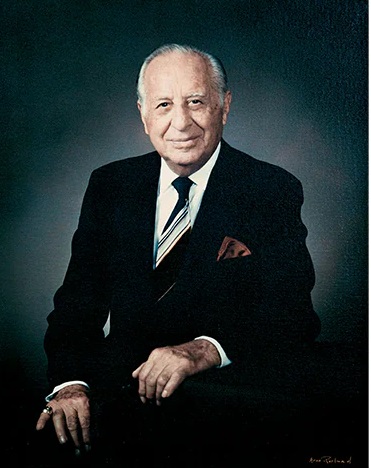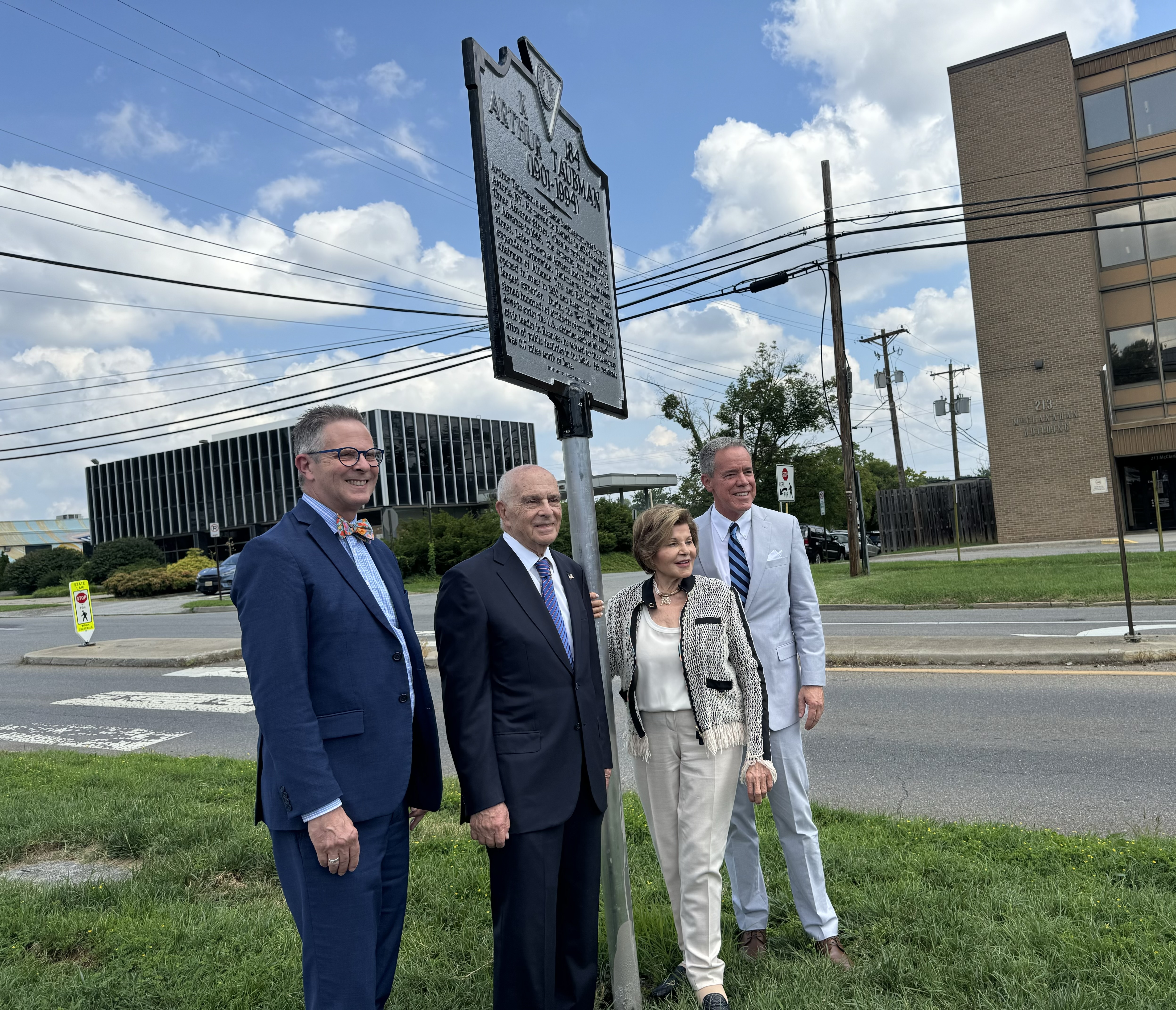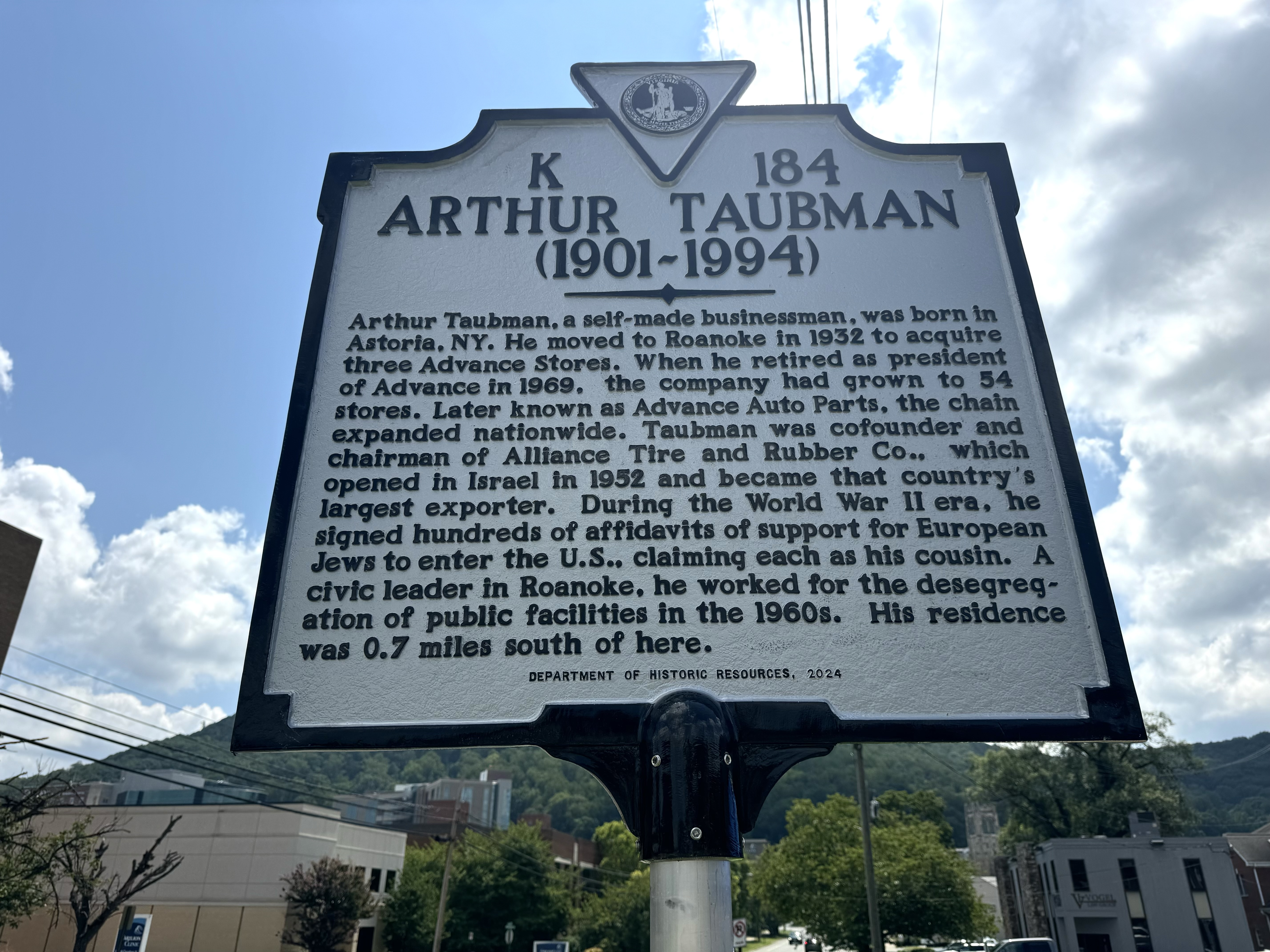Just over a year after its application was sent to the Department of Historic Resources, a historic marker recounting the life of Arthur Taubman was unveiled in Roanoke on Wednesday morning.
Taubman, a Star City resident who died in 1994, aided hundreds of Jews during World War II and was an international businessman, founding what is now Advance Auto Parts.

The Taubman name is easily recognizable in Roanoke, with the city’s art museum carrying the family name, as will Carilion Clinic’s new cancer center, to which the Taubman family donated $25 million.
In 1932, Arthur Taubman purchased three failing auto parts stores in Roanoke, pawning off personal items to do so. These stores became Advance Auto Parts, which today is a publicly traded company with more than 4,200 locations. He was also founding chairman of Alliance Tire and Rubber Co., which at one point was Israel’s top business exporter and created hundreds of jobs.
“Arthur Taubman was the kind of person who saw business as more than just profit. It was a way to lift people up,” Mayor Joe Cobb said at the unveiling.
Taubman also worked to found the Roanoke Symphony Orchestra and served as president of the Roanoke Valley Negro College Fund, Cobb said. 
During WWII, Taubman helped an estimated 500 Jews travel to the United States by writing affidavits of support, in which he named himself as a first cousin and promised financial support.
Nick Taubman, Taubman’s son, who is 90 years old and lives in Roanoke, said at the unveiling that these affidavits meant “a trip to life” to those who acquired them. Nick’s wife, Jenny, as well as his sister Stephanie, were also in attendance at the event.
The FBI eventually questioned Arthur Taubman, asking how many first cousins he had. Nick Taubman said his father answered, “Any Jew that’s in trouble is my first cousin.” This remark led to applause from Taubman’s extended family and others who came to see the unveiling. Nick Taubman said the FBI “left and never came back” after receiving that answer.
Nick Taubman said it’s uncertain how many people were saved as a result of his father’s affidavits.
“Did he save 500 people? Did he save 50 people? Did he save 10 people? Did he save one person? If he did, it was worth it. If you’ve saved one life, you’ve saved the world. And that’s how the Jewish look at it,” he said.
Nelson Harris, a former mayor and local historian, submits a couple of applications every year to the DHR for its highway marker program, which is very competitive, Harris said. The whole process, from writing the application to unveiling the marker, took about a year and a half.
This marker is the 12th successful application introduced by Harris. Taubman’s name came up often while Harris was researching his various historical books over the years, he said. 
“His fingerprints are all over this city and beyond,” Harris said. “He was, and remains, a towering figure to both his family and to this city.”
The marker is placed less than a mile from Taubman’s home, on McClanahan Street, where Nelson said it would be the most visible.
“By placing historic markers like this one in our neighborhoods across our community, we ensure that the stories of Roanoke and its visionaries, advocates and everyday heroes who lived here are remembered and shared,” Cobb said.
Mike Pulice, an architectural historian with DHR, said at the unveiling that the main goal of the highway marker program is to “educate.”
“We especially hope to call attention to historically significant people, places and events that passersby may not know much about,” Pulice said.
Nick Taubman said this marker shows “how people care for people,” but what is of greater importance is “how people change behavior as a result of seeing this, and I hope that will be.”



